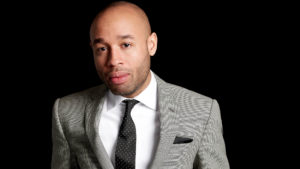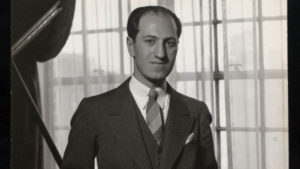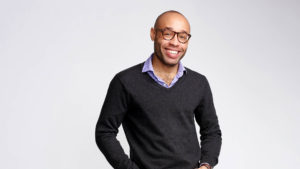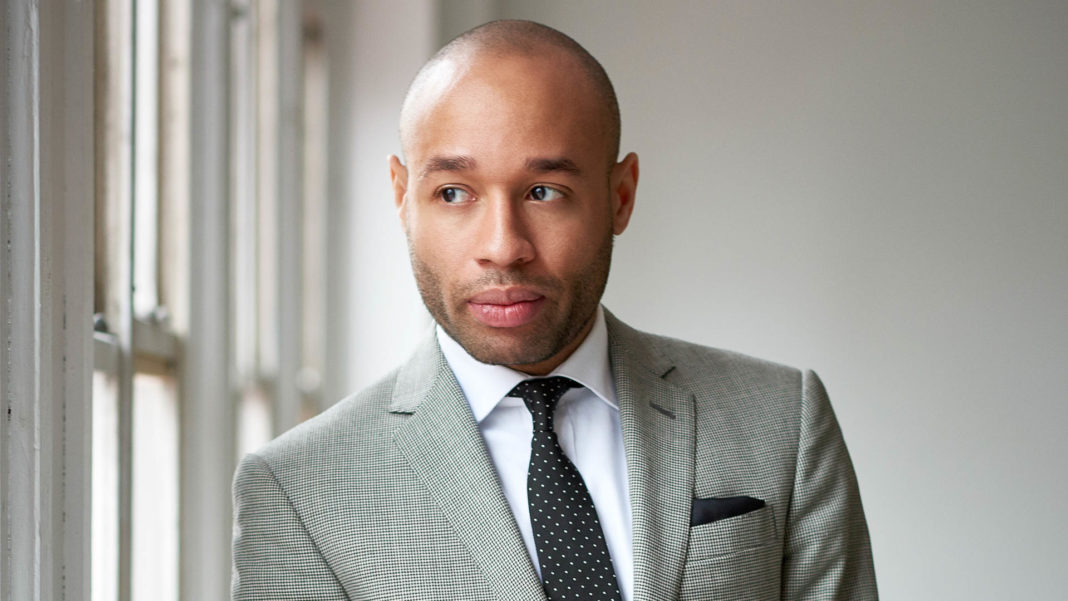Music scholars have long argued whether or not George Gershwin was a classical composer or a jazz composer. Or both. It is a conundrum that pianist Aaron Diehl can relate to.
“They are both very much a part of my musical DNA and influences,” he says. “I have to reconcile the fact that I need to find the way to combine the best of both worlds in my music. Both genres speak and resonate heavily with me.”

Diehl, who has a new trio album due out this fall and often plays with recent Grammy Award-winner Cécile McLorin Salvant, finds himself fronting the LA Philharmonic this weekend for performances of Gershwin’s Rhapsody in Blue on Saturday and the composer’s Second Rhapsody on Sunday. This is part of the celebration of the music of William Grant Still and the Harlem Renaissance. Thomas Wilkins conducts both concerts.
When we discussed the upcoming concerts yesterday, it was just after a rehearsal with the LA Philharmonic. And it was clear the jazz/classical line was going to be straddled for these concerts.
“With the Rhapsody in Blue, I’m doing some improvisations in the cadenzas and that’s difficult,” he reveals. “It’s got to feel like it is a seamless part of the piece, but on the other hand it should have some feeling of improvisation and freedom in the phrasing and the content and the ideas. It’s really making sure there’s a nice balance between the improvised and the written material.”
From Diehl’s perspective at the piano, the greater challenge can be found in the Second Rhapsody.

“It was written for a film called Delicious in 1931 and it’s less of a piano concerto. Even though the piano is clearly out front, it’s really embedded in the ensemble. The challenge in playing that piece is really figuring out how to weave the material together as a soloist because there is a lot of back and forth between the ensemble and piano. The mystery lies in how to connect the dots of the piece and not just let it be a series of motifs.”
Walking the line between jazz and classical, music as written and improvised music, is something Diehl has given a lot of thought. He also thinks that maybe we’ve gotten a little too precious with classical music performances.
“Even though there is a lot of scholarship and practice, it’s my firm belief we don’t really know how Chopin or Liszt sounded. We don’t have recordings of classical music like we do jazz musicians like John Coltrane or Louis Armstrong. I’d be really interested to get a time machine to see how these guys and women performed their music. There’s a part of me that thinks it could be radically different than the way we interpret or perform today. I bet it was more raggedy, a lot more rawness. If Beethoven was improvising a cadenza it was, at times, a bit raw and edgy – certainly for the time.”

Since the concerts in which Diehl is appearing also include William Grant Still’s music, it was important for the pianist to discuss how amazing Still’s accomplishments were.
“You have to talk about race,” he says. “The fact that this is a man who was an African-American who made a career in classical music as a composer and conductor. That was quite a feat for the early 20th century. It’s quite a feat even now in classical music. He had a vision of wanting to incorporate the African-American folk tradition, meaning the blues specifically, and the syncopations of African-American folk music. This music was seen as either primitive or simply a novelty to be exploited. Just to see a man like him have even a modicum of success in getting major orchestras to play his pieces, that’s incredibly encouraging and inspiring.”
Diehl believes it is vitally important that we continue to acknowledge and support artists like Still and pianist Hazel Scott who received a shout-out from Alicia Keys during last weekend’s Grammy Awards.
“Wow, she could play. Play their music! The music just has to be heard. I’m a big advocate of John Lewis who was the music director of the Modern Jazz Quartet. Whenever I get the opportunity in concerts, I play his music. For artists with a platform it’s important to be rooting for those artists and composers who could be forgotten if people don’t play their music. Sometimes it takes larger institutions to really keep these people in the consciousness of the greater public.”
Or it might take an artist like Cécile McLoran Salvant who brilliantly bridges the past while moving jazz vocals forward. Diehl is regularly found on the piano for both her recordings and concerts.
“She’s a special artist because what she does that most people can’t do is make connections. And not just between Duke Ellington and say Herbie Hancock, but connections between art and human relations to that art and culture. She points things out – anything you can think about – she can make all kinds of associations. That’s so rare. That’s another level of artistry.”

Which takes us back to Gershwin. When asked if he agrees with the composer’s statement that “Life is a lot like jazz…it’s best when you improvise,” Diehl pauses for a moment before responding.
“Ah…maybe I should slightly alter that. Gershwin was a very YOLO type of guy. [You only live once] For me it’s life is a lot like jazz if you improvise and you also have a plan. If you have a generic structure of what you’re doing and then you can work within that framework. Even when I’m soloing, I’m not ‘off the cuff – I have no idea the next note that follows.’ A lot of time I’m thinking on a macro scale – how will this all fit together. It’s not random.”
No more than his playing classical and jazz music is.
Photos of Aaron Diehl by Jaime Kahn/Courtesy of the LA Philharmonic
Photo of George Gershwin by Alfredo Valente/Courtesy of the NY Public Library











